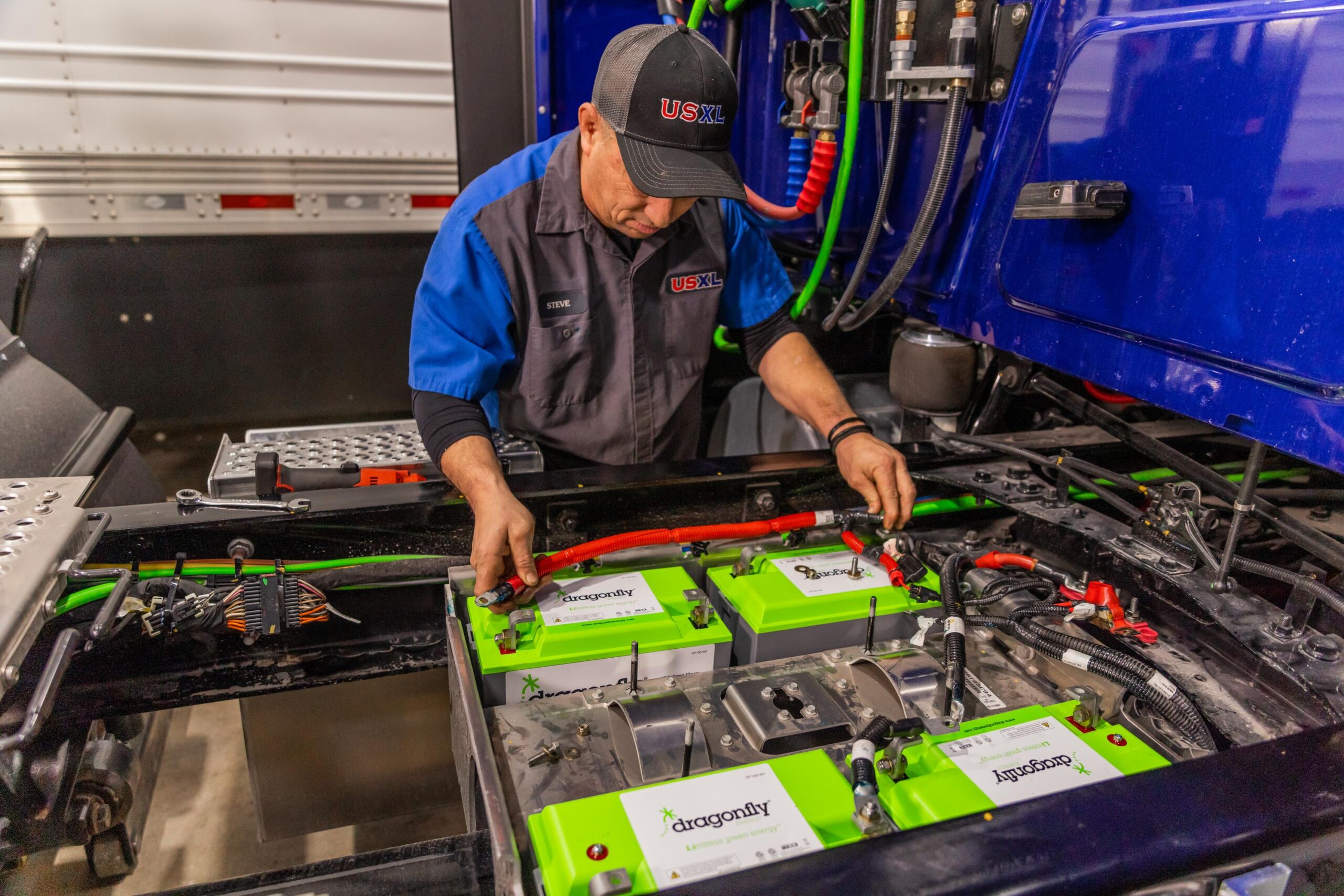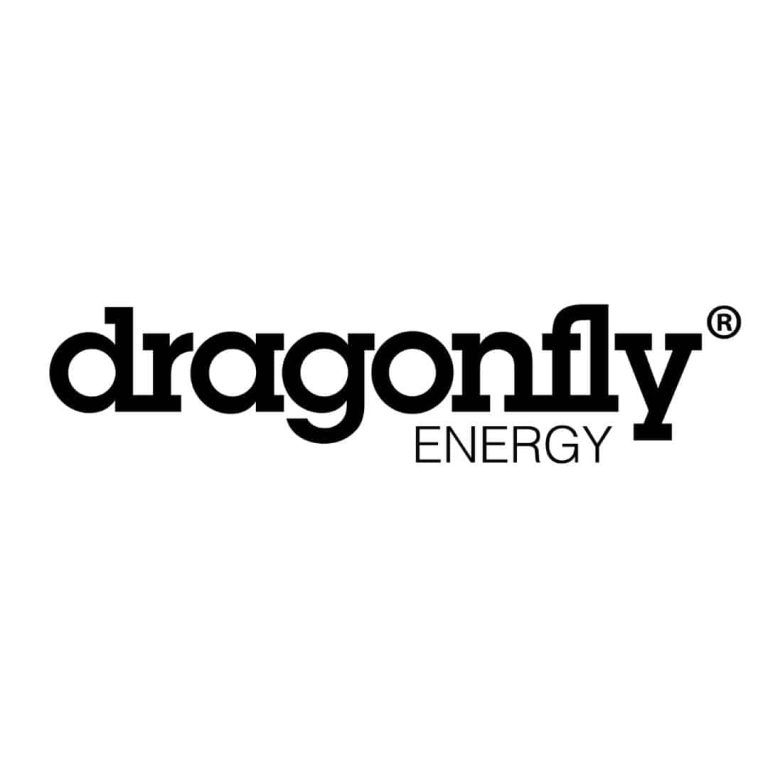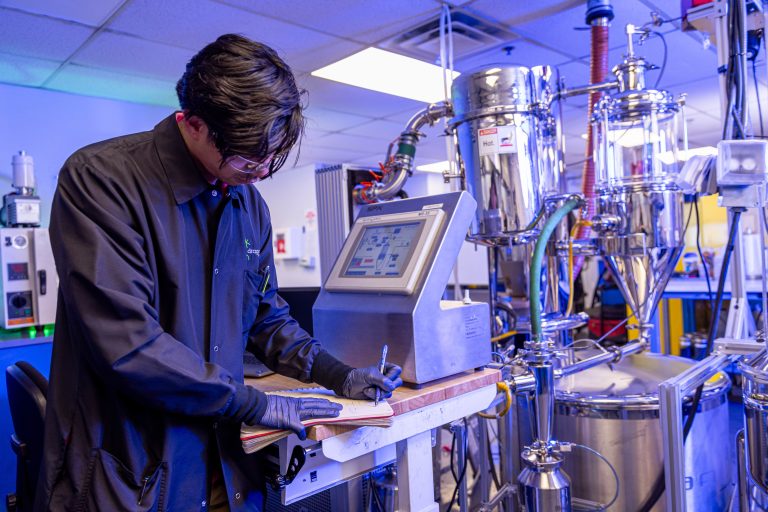Long-haul truck drivers, unsung heroes of the road, perform an essential service by transporting goods across our country. Their efforts keep our economy moving and ensure that goods reach their destinations on time.
However, during their much-needed rest periods, drivers often face a dilemma of the best way to power their long-haul truck sleeper cabin during rest periods. National laws mandate these rest periods, allowing drivers to recharge physically and mentally. Yet, staying comfortable inside the truck during these breaks comes at a monetary and environmental cost. Drivers often keep their engines running to power heating, cooling, and other necessities to maintain an enjoyable environment.
As technology advances, the demand for more efficient and sustainable solutions in various industries continues to grow. Long-haul trucking has ample room for improvement, especially in the power source department for sleeper cabs in trucks.
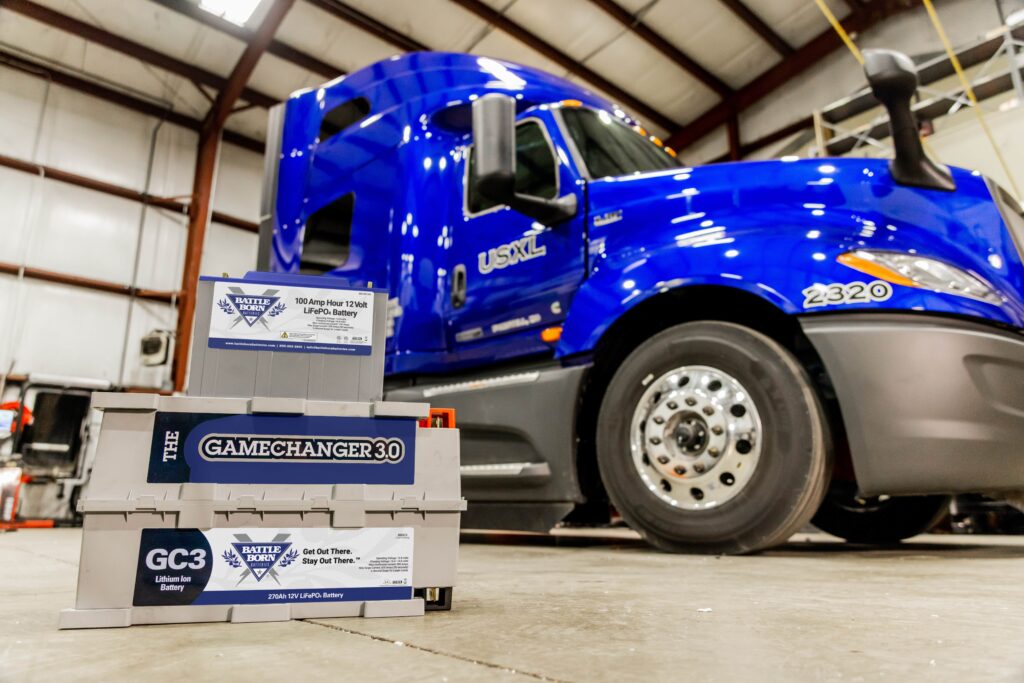
Power Demands of Long-Haul Trucking
Idling fuel consumption is a growing concern for long-haul truck drivers. When a heavy-duty truck remains idling, it consumes approximately 0.8 gallons of fuel per hour. This seemingly small amount can quickly add up, especially during extended periods or waiting periods. The financial implications of idling fuel consumption are evident, with drivers spending a substantial portion of their earnings on fuel alone. The fuel costs incurred during prolonged periods of idling can quickly accumulate, affecting both the driver’s bottom line and the overall profitability of their operations.
Keeping the average sleeper cabin comfortable involves powering various electrical appliances such as TVs, microwaves, and air conditioners. People often use a 2000W inverter to power these devices.
The key is to power these loads over a ten-hour rest period and minimize auto-sStarts during a 34-hour reset. The air conditioners used in long-haul truck sleeper cabs are efficient and draw around 40amps at 12v. This means they would use close to 4800Wh during a ten-hour rest period with the ac running full blast during the summer heat. If the cabin is pre-cooled while the driver is in motion or isn’t dreadfully hot out, they will use much less power over that period.
However, the impact of idling extends beyond the cost of fuel. It also accelerates engine wear and tear, increasing maintenance and repair expenses. Manufacturers often base their warranties and maintenance intervals on “hours operated” rather than “miles traveled.” This means that idling contributes to the depletion of warranty coverage and shortens the time between required maintenance, resulting in additional costs for drivers and fleet operators.
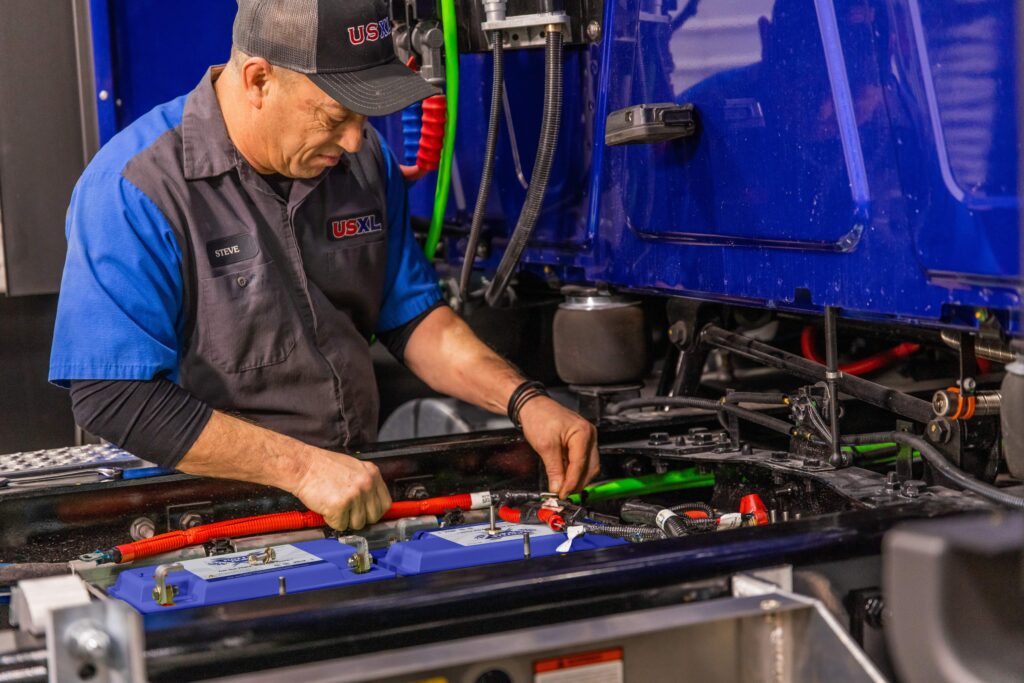
Cost Analysis
Understanding the true cost of idling is important for long-haul truck drivers and fleet owners. By quantifying the financial implications beyond fuel consumption, they can make informed decisions about adopting alternatives to reduce idling and optimize their operations. Investing in solutions that minimize idling, such as alternative power sources like electric APUs, becomes an economically sound choice.
By reducing idling, long-haul truckers can save money on fuel costs and extend the life of their engines, reduce maintenance expenses, and enhance the overall efficiency of their operations. Manufacturers and long-haul truckers should consider the comprehensive cost of idling, considering both immediate fuel consumption and the long-term impact on the engine’s performance and associated maintenance requirements.
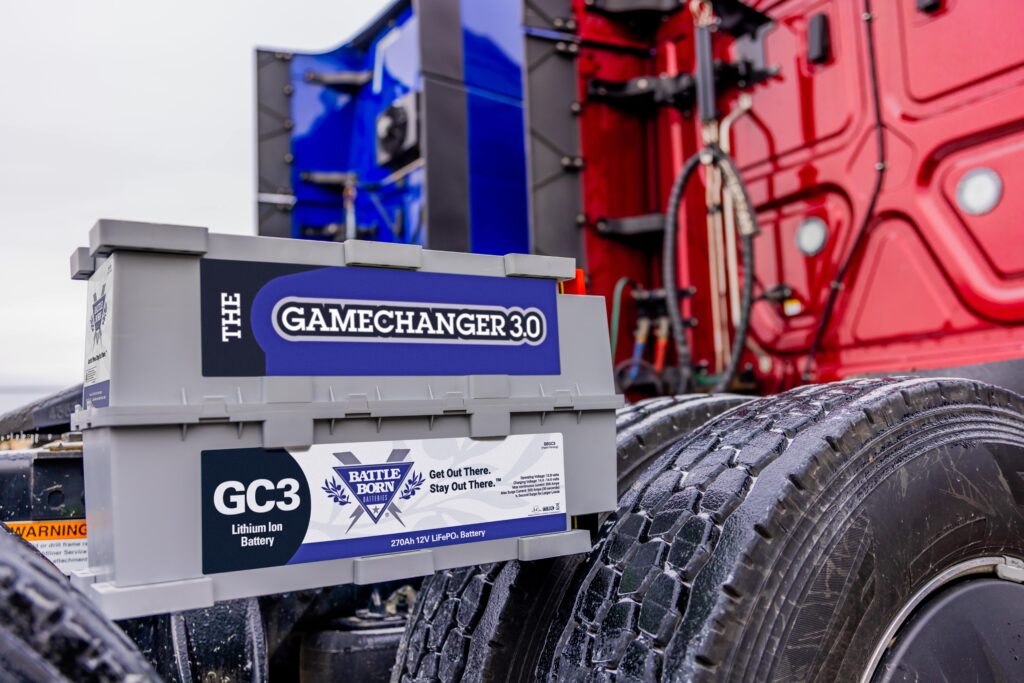
Alterative Options Available Today
There are a handful of options available on the market today that help amend constant idling. Diesel Auxiliary Power Units (APU), electric APUs, and Engine Auto Start/Stops.
Despite being a common choice, the diesel APU has been proven problematic. These APUs require consistent maintenance, which can be costly for fleet owners. They are reliant on the fluctuation of the cost of diesel on the market. As a result, there are better long-term solutions than the diesel APU for powering the cabin.
On the other end, electric APUs typically have (4) or (8) AGM batteries that serve a dual purpose: run the cabin while stationary and start the engine. However, AGM batteries are only somewhat ideally suited for these applications. They tend to degrade quickly when used for continuous discharge cycles, such as running the cabin appliances, and they are less efficient for starting the engine than other batteries.
Enter Lithium Batteries
Dragonfly Energy has developed solutions to tackle these challenges. Upgrading your cab battery bank to lithium can unlock long-term savings and experience reliable performance and power. This solution involves separating the battery banks to create dedicated batteries for specific purposes.
A dedicated battery bank of flooded lead acid batteries is used for engine cranking. Flooded lead-acid batteries are less expensive and better suited for providing the high currents required to start the engine.
A separate and specialized battery bank for the sleeper cabin uses LiFePO4 batteries. These batteries have a higher energy density, longer lifespan, and better ability to handle continuous discharge cycles, making them an ideal choice for powering the cabin during rest periods. With a lifespan of up to 10 times longer, lithium batteries can save truckers from frequently replacing multiple AGM batteries, translating into reduced maintenance costs and increased overall savings.
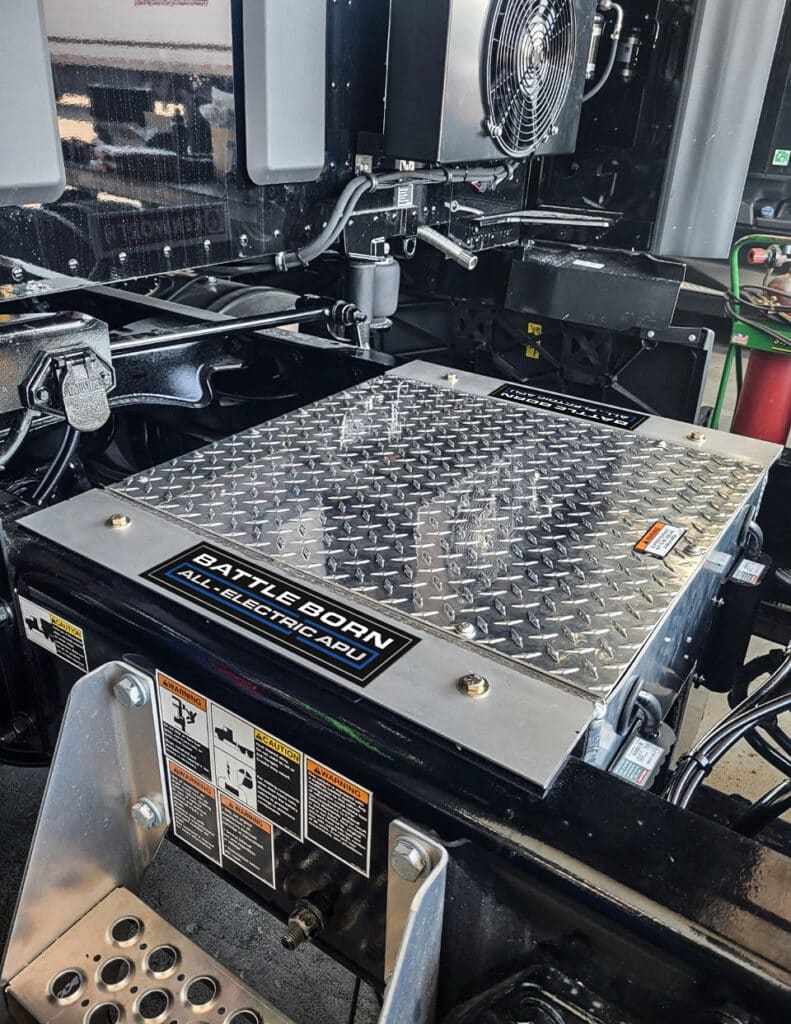
The Power of Lithium
The greater depth of discharge and higher usable power of lithium batteries enable you to maximize the efficiency of your system. This allows long-haul truck drivers to reduce the need for engine starts and subsequent fuel consumption during breaks or overnight stays. Dragonfly Energy’s standard lithium system will give you an impressive amount of usable amp hours.
With a lithium system like this, drivers can confidently rely on their APUs to provide the necessary power for extended periods without worrying about draining the batteries. The significant power capacity translates into doubling the runtime for 12V air conditioning. Long-haul truckers can enjoy extended cooling during rest periods, even in hot weather conditions. The increased runtime allows for a more comfortable and enjoyable rest experience, contributing to overall driver well-being and retention for the fleet company.
Peak Performance of Lithium Batteries
Maintaining optimal performance, especially during temperature extremes, is a key deciding factor in what APU to use for long-haul truckers. Traditional batteries may struggle to perform in freezing conditions, requiring engine activation for charging.
Manufacturers create heated lithium batteries to withstand harsh weather conditions and maintain high charge levels even in sub-zero temperatures. Having power in cold temperatures helps reduce fuel costs incurred from idling and ensures the HVAC system runs properly regardless of the weather conditions.
Dragonfly Energy lithium batteries have an advanced battery management system. This system optimizes performance and extends the working life of the battery by protecting against overcharging and overcurrent. It also allows the battery to reach maximum discharge depth without any risk of damage. With this robust battery management system, you can have peace of mind knowing that your power source is well-protected and operating at its highest efficiency.
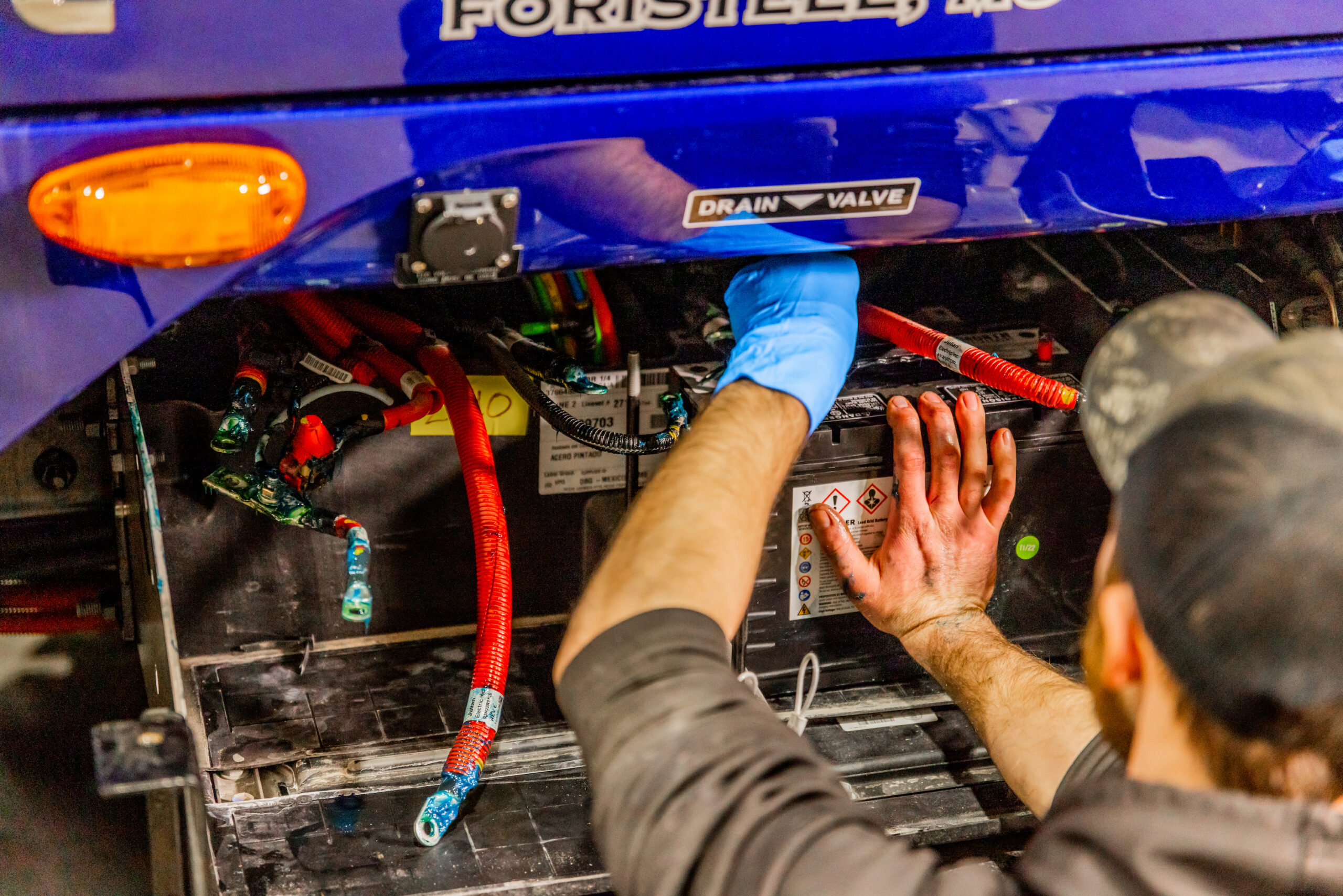
Even More Safeguards in Place
Dragonfly Energy lithium battery systems are equipped with proprietary vibration protection, internal heating, and passive cooling within the designs to ensure the system’s longevity and reliability. Vibration protection safeguards the sensitive components of the APU, allowing it to withstand the rigors of the road. Internal heating ensures charging ability even in cold temperatures, while a design featuring passive cooling helps prevent overheating during operation.
Final Thoughts
The struggle of finding reliable power for your sleeper has long-plagued long-haul trucking. Traditional APUs have their fair share of challenges, including high costs, fuel consumption, and maintenance requirements. Advancements in technology have introduced a great alternative in the form of lithium batteries.
A lithium battery bank for your sleeper cabin offers a long-term solution for all your fleet’s power struggles. Lithium batteries provide consistent power without relying on costly fuel consumption. Long-haul truck cabins can enjoy uninterrupted power for heating, cooling, lighting, and other electrical appliances with the need for noisy or expensive solutions that require constant maintenance.
In addition to these great benefits, lithium batteries are more environmentally friendly than traditional APUs. They produce zero emissions and do not contribute to air or noise pollution. This aspect benefits the environment and creates a more pleasant atmosphere within the sleeper cabin, promoting better rest and overall comfort for long-haul truckers.
Creating more sustainable solutions with the comfort of long-haul truckers in mind creates long-term driver retention and loyalty.
Call Our Technical Specialists Today.
Learn more about how a lithium battery system can increase performance and you save money.
